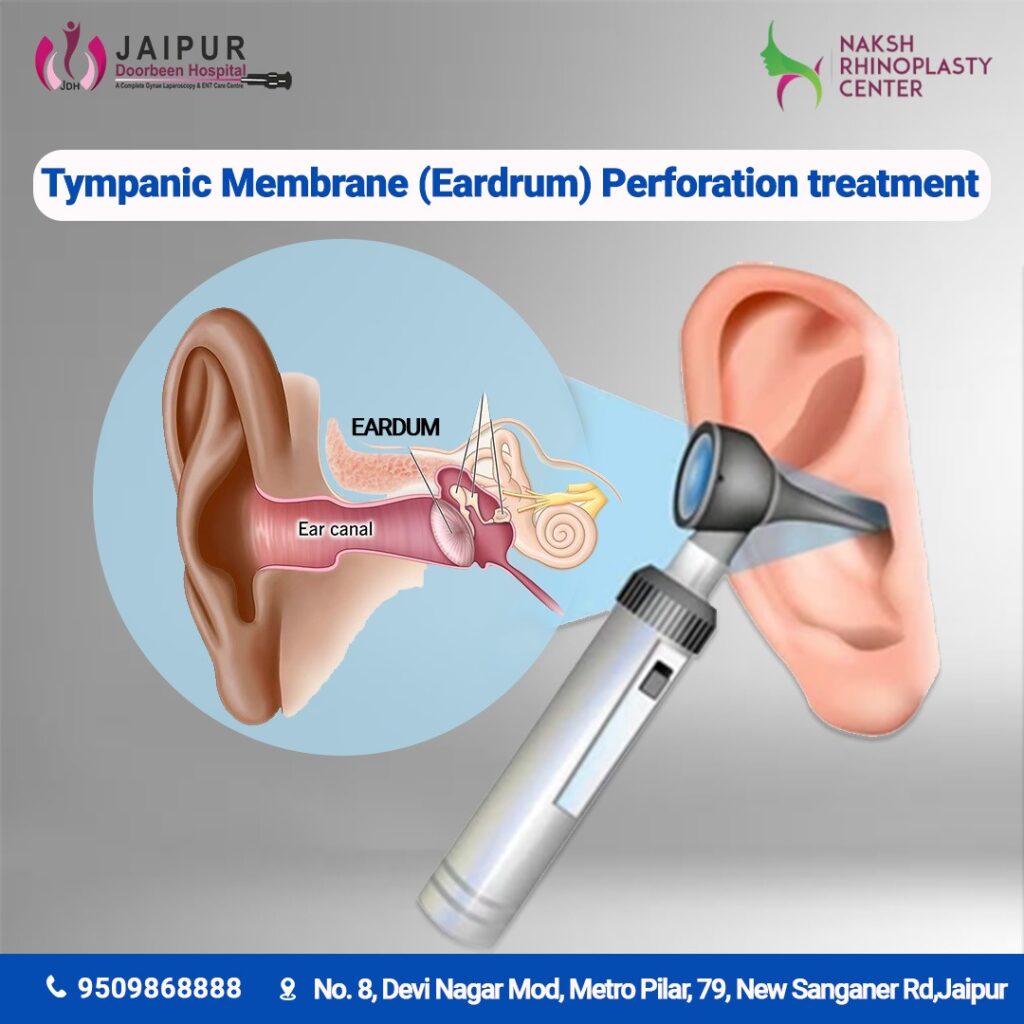Tympanic membrane perforation, commonly known as a ruptured eardrum, is a condition where there is a hole or tear in the thin membrane that separates the ear canal from the middle ear. This can result in hearing loss, ear pain, and increased susceptibility to ear infections. In Jaipur there are several treatment options available for tympanic membrane perforation, ranging from conservative management to surgical intervention. Let’s explore these options in detail:

- Observation and Monitoring:
In some cases, especially if the perforation is small and not causing significant symptoms, the doctor may recommend a wait-and-watch approach. Regular check-ups are important to monitor the condition and prevent complications. - Medication:
Antibiotics: If the perforation is associated with an ear infection, antibiotics may be prescribed to treat the infection and prevent
further damage.
Pain relievers: Over-the-counter pain relievers such as acetaminophen or ibuprofen may be recommended to manage ear pain. - Hearing Aids:
For patients with significant hearing loss due to a perforated eardrum, hearing aids may be recommended to improve hearing. - Tympanoplasty:
Tympanoplasty is a surgical procedure used to repair a perforated eardrum. During this procedure, the surgeon grafts a small piece of tissue onto the perforated eardrum to close the hole. Tympanoplasty is usually performed under general anesthesia and is highly successful in restoring hearing and preventing recurrent ear infections. - Myringoplasty:
Myringoplasty is a type of tympanoplasty that specifically focuses on repairing small perforations of the eardrum. It is a minimally invasive procedure that can be performed under local anesthesia. - Paper Patching:
In cases where the perforation is small and unlikely to heal on its own, a paper patch may be placed over the hole to promote healing. This is a temporary measure and may need to be repeated several times. - Ear Drops:
Ear drops containing antibiotics or steroids may be prescribed to prevent infection and reduce inflammation in the ear. - Prevention of Water Entry:
It is important to keep the ear dry to prevent infection and further damage to the eardrum. Patients with perforated eardrums are advised to avoid swimming and to use earplugs while showering or bathing.
In conclusion, the treatment of tympanic membrane perforation in Jaipur depends on the size and severity of the perforation, as well as the patient’s symptoms and overall health. It is important to consult an ENT specialist for a proper diagnosis and individualized treatment plan. Early intervention can help prevent complications and improve outcomes for patients with this condition.

